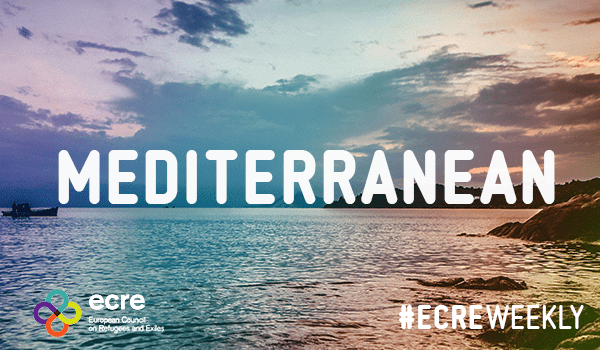Five Eritreans have filed lawsuit against Italian authorities, a shipping company and a skipper over a pushback to Libya in 2018. Following a shipwreck off Lampedusa, 22 people remain missing at sea, one body has been retrieved, and 25 people have been returned to Tunisia from where their boat set sail. Two more people went missing in the Western Mediterranean. 146 survivors, rescued by the civil ship Open Arms, disembarked in Sicily after surviving days in unseaworthy dinghies amid worsening weather conditions. The so-called Libyan coast guard intercepted more than 300 people within one week and retuned them to Libyan shores.
Five Eritrean nationals are suing the Italian state as well as shipping company Augusta Offshore and one of their skippers over their involvement in a pushback case dating back to July 2018. The claimants had attempted to escape Libya together with another 150 people and after two days at sea, they were intercepted by the so-called Libyan coast guard. The patrol boat was already carrying people it had intercepted earlier and sea conditions were worsening, thus it called for support. In response, Italian navy ship Caprera, stationed in Tripoli, ordered Augusta Offshore’s vessel Asso Ventinove to intervene. The ship changed course, joined the Libyan patrol boat and 200 people were transferred onto the commercial vessel. It then sailed back to Tripoli where it handed the 200 people over to Libyan authorities, resulting in their arbitrary detention. According to ECRE member ASGI and Amnesty International Italy, whose lawyers support the claimants, the incident “exposed them to months of arbitrary detentions and abuse in violation of, among others, their right to asylum.” This is the first time that a private company is facing legal action in Italy over a pushback.
After a shipwreck last weekend off Lampedusa, 22 people remain missing at sea. One body was retrieved and 25 people rescued and returned to Tunisia. The Tunisian navy, which coordinated the rescue operation, interrupted the search for the missing persons on Sunday night due to bad weather conditions. Two people whose boat sank in the Western Mediterranean remain missing while eight fellow travellers were rescued by the Spanish coast guard and brought to Motril, Spain.
In two operations on 13 February, the NGO ship Open Arms rescued 146 people in distress. While rescuing 40 people in the Maltese SAR zone, the NGO was reportedly closely watched by a Libyan patrol boat which ordered the Open Arms vessel to leave what was wrongly claimed to be Libyan waters. In a second rescue, 106 people travelling on an unseaworthy dinghy were brought on board the rescue ship whilst an arriving storm caused four-meter-high waves. Only minutes after the last people were transferred to safety, the dinghy capsized. The 146 survivors disembarked in Sicily on 16 February after Malta had reportedly refused to offer a safe port. The civil rescue ship Aita Mari, operated by Maydayterraneo, has left Spanish shores on 12 February and is now the only civil search and rescue ship in the SAR zone off the Libyan coast. In the morning hours of 19 February, the Aita Mari rescued more than 100 people off Libya, the NGO wrote on Twitter. The same day, the search and rescue vessel Sea Watch 3 left the Spanish port of Burriana towards the SAR zone more than seven months after it was blocked by Italian authorities.
According to the International Organization for Migration (IOM) Libya, 318 people were intercepted by the so-called Libyan coast guard between 9 and 15 February and were pulled back to Libya from where they had escaped.
For further information:
- ECRE, Med: The Cycle of Interceptions, Rescues and Arrivals Continues, February 2021
- ECRE, Med: UN Human Rights Body Says Italy Violated Migrant’s Right to Life Amid More Deaths at Sea and Returns to Libya, January 2021
- ECRE, Med: Rescues, Returns, and Deaths – Tragic Business as Usual at the Mediterranean Sea, January 2021
Photo: ECRE
This article appeared in the ECRE Weekly Bulletin. You can subscribe to the Weekly Bulletin here.

